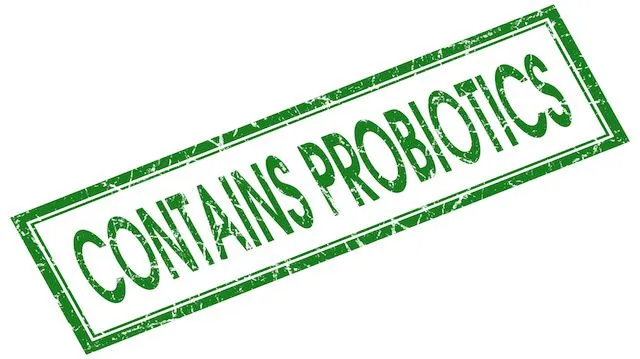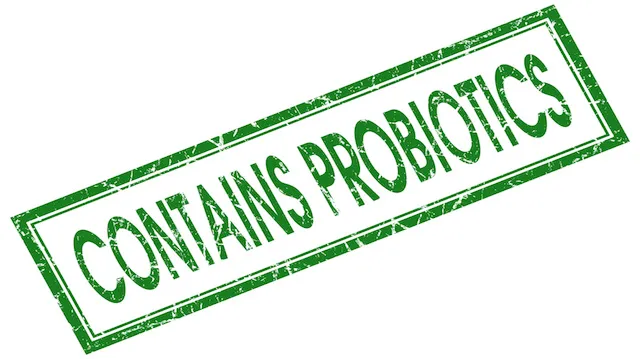
- Share on Facebook64
- Share on Pinterest
- Share on Twitter
Irritable bowel syndrome (IBS) is one of the most commonly diagnosed digestive illnesses today. In fact, over 60 million people in America suffer from it. But this condition is simply a “syndrome” — a collection of symptoms which are commonly observed occurring together. There is no major physical breakdown that causes IBS, yet those diagnosed experience frequent abdominal discomfort, cramps, stomach pain, bloating, gas, diarrhea or constipation.
IBS is therefore referred to as a functional bowel disorder — it is not a disease that can be contracted, but rather a gradually worsening discomfort of the gut influenced by chronic consumption of a low-quality or pro-inflammatory diet.
Note that this is a different condition than the similarly-named inflammatory bowel disease, or IBD, which is an autoimmune disease affecting the bowel. While IBD is caused by disordered overactivity of the body’s own immune system resulting in an attack on the bowel, IBS is thought to be a result of many small factors, such as small intestinal bacterial overgrowth (SIBO), inflammation on a microscopic level, changes in intestinal motility or impaired communication between the gut and the brain via the vagus nerve (also called the gut-brain axis).
Conventional treatments for IBS include prescriptions like sedatives, antispasmodics and antidepressants. While these drugs may provide temporary relief from the symptoms, they do not actually fix the gut or prevent further development of the syndrome. Instead, they can cause serious side effects.
The good news is, there are many holistic natural alternatives that can promote healing and overcome irritable bowel syndrome permanently. One of the newest research findings is based on the use of helpful bacteria, also known as probiotics.
Studies have found that probiotics can help provide relief from irritable bowel, with some being more effective than others. Let’s first examine a few of the contributing factors to IBS, so we can better understand how probiotics can help remedy these underlying issues.
Factors which may contribute to irritable bowel syndrome
While these contributing issues do not explain why IBS happens, they allow us to understand some of the underlying mechanisms, which can then be addressed with holistic therapies.
Problems with gut motility: This refers to a change in the normal process of intestinal contractions which push food through all the stages of digestion. Some IBS patients have stronger and longer contractions, which results in an accelerated transit time; others have weaker contractions resulting in constipation.
Bacterial overgrowth: An excess of bad bacteria in the small intestine can be both a cause and effect of irritable bowel syndrome. If the bacteria are present for some other reason, they may cause inflammation or infections which lead to IBS. On the other hand, the reduced intestinal motility of some IBS sufferers can encourage too much bacteria to sit in the digestive system.
Low-grade inflammation: Several studies have indicated that sufferers of IBS usually exhibit inflammation throughout the intestinal system on a microscopic level. This affects nerve function which may in turn alter digestive mechanisms and cause sensitivity. Food sensitivities (such as dairy, gluten, yeast, eggs, corn, soy, and peanuts) or chronic infections are often the cause of this type of inflammation.
Psychological factors: Serotonin is commonly recognized as one of the important brain chemicals behind a healthy and balanced state of mind; however, what many people don’t know is that much of the body’s serotonin actually floats around in the gut. Serotonin regulates movement and secretions within the digestive system, so mental health conditions such as anxiety and depression, or even just living with stress, can play a role in IBS. Some research suggests that IBS patients who suffer mainly from diarrhea may have increased serotonin levels in the gut, while those with constipation-predominant IBS have decreased amounts.
Recent studies on probiotics for irritable bowel syndrome
Consuming probiotic foods and supplements may help to address all of the underlying mechanisms of IBS explained above.
Two studies published in the journal Gastroenterology confirmed that beneficial bacteria help make the lining of the intestines healthier in a number of ways. This includes suppressing the growth of damaging bacterial species and preventing them from taking hold in the gut, as well as improving the ability of the epithelial cells in the intestinal lining to act as the barrier they are intended to be. Probiotics also promote healthy movement of waste through the gut and improve immune activity, which helps to ward off infections that might otherwise cause inflammation.
Another beneficial function of probiotics is to secrete short-chain fatty acids, which both decrease the pH level in the intestinal environment and result in the production of proteins that help kill harmful bacteria. One of these acids is butyric acid, which is a byproduct of dietary fiber being fermented by bacteria. This particular acid nourishes immune cells within the colon and helps to strengthen the mucus membranes within the gut.
 A 2008 animal study showed that a probiotic species called Bifidobacterium infantis helps to reduce inflammatory markers and increases the mood-stabilizing chemical tryptophan, a precursor to serotonin. This shows how probiotics can ameliorate both the gut and the psychological factors which contribute to IBS.
A 2008 animal study showed that a probiotic species called Bifidobacterium infantis helps to reduce inflammatory markers and increases the mood-stabilizing chemical tryptophan, a precursor to serotonin. This shows how probiotics can ameliorate both the gut and the psychological factors which contribute to IBS.
A further study published in the journal Clinical Nutrition showed that probiotics can even inhibit the death of the epithelial cells which line the intestines. Overall, it’s clear that these helpful bacteria support healthy functioning of the digestive system as well as the supportive immune and mood functions.
How to use probiotics to remedy IBS naturally
So we’re convinced that probiotics can go a long way toward fixing IBS, but which species are best? Most clinical studies done thus far have used strains of the following species:
- Lactobacillus
- Bifidobacterium
- Propionibacterium
Other studies have used standardized combinations of species:
- VSL#3: This combination contains Bifidobacterium (B. longum, B. infantis, and B. breve); Lactobacillus (L. acidophilus, L. casei, L. delbrueckii ssp. bulgaricus, and L. plantarum); and Streptococcus salivarius ssp. thermophilus.
- SCM-III: This combination contains L. acidophilus, Lactobacillus helveticus, and Bifidobacterium sp.
Two studies from 2003 and 2005 confirmed that the probiotics found in the combination VSL#3 were able to reduce flatulence and delay transit time in people normally affected by diarrhea-dominant IBS. Similarly, a study using the SCM-III combination of probiotics was able to produce overall improvement in symptoms like bloating and abdominal pain in 80 percent of the study participants. These combinations have high potency, can be easily purchased and safely used on a daily basis.
Of the single probiotic strains, Bifidobacterium infantis has shown the highest level of efficacy in improving the overall symptoms of irritable bowel syndrome. A 2009 meta-analysis of 16 randomized controlled trials showed that B. infantis had the greatest symptom improvement score. This effective probiotic can be used twice a day for a period of one to two months to help normalize gut function and reduce IBS symptoms.
While using pre-packaged strains of probiotics may be useful, we believe that the best and safest way to get as many varied live cultures as possible is to consume fermented and cultured foods. These include fermented vegetables like sauerkraut or kimchi, fermented milk products (clabber, yogurt, cheese, buttermilk), kefir (cultured milk or water), or fermented soy products (natto, miso, tempeh).
Other steps toward healing the damaged digestive system and finding relief from IBS include supplementing with zinc, vitamin A, B vitamins, glutamine and anti-inflammatory oils such as fish oil and evening primrose oil.
Irritable bowel syndrome can significantly disrupt your everyday life and cause significant pain and discomfort. Why not try the gentle natural therapy of probiotics!
—The Alternative Daily
Sources:
http://www.nature.com/ajg/journal/v101/n7/abs/ajg2006294a.html
http://onlinelibrary.wiley.com/doi/10.1046/j.1365-2036.2003.01543.x/full
http://onlinelibrary.wiley.com/doi/10.1111/j.1365-2036.2005.02579.x/pdf
http://www.sciencedirect.com/science/article/pii/S0923250801012542
http://www.ncbi.nlm.nih.gov/pmc/articles/PMC2886445/
http://www.jnmjournal.org/journal/view.html?uid=2&vmd=Full
- Share on Facebook64
- Share on Pinterest
- Share on Twitter

